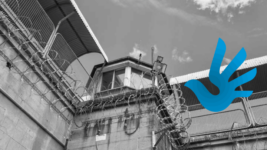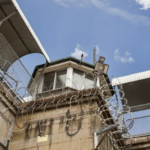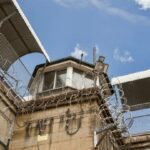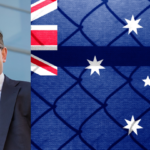UN Detainee Torture Prevention Committee Cancels Recalcitrant Australia

The UN Subcommittee on Prevention of Torture (SPT) announced on Monday that it’s terminated its trip to Australia, which it already attempted and had to pull out of midway last October, after NSW and Queensland had refused the delegation access to inspect certain facilities as per its mandate.
The SPT is an oversight body comprised of independent experts that monitors nations a party to the OPCAT (Optional Protocol to the Convention Against Torture) to ensure they’re complying with the terms of the agreement that’s designed to prevent human rights abuses in places of detention, including conduct which may amount to the offence of torture under the law.
SPT chair Suzanne Jabbour said in the statement that despite federal authorities having been receptive on its initial trip, “there is no alternative but to terminate the visit as the issue of unrestricted access to all places of deprivation of liberty in two states has not yet been resolved”.
As Australia OPCAT Network coordinator Steven Caruana has since noted “termination has only happened on one other occasion to Rwanda”. And this is over the 15 year period that the SPT has been operating, which has involved “over 80 visits to more than 60 countries”.
A series of appraisals saw our nation’s international human rights standing trashed under the Morrison government, while the election of Anthony Albanese to prime minister last May had brought the potential for improvement with his party’s promise of a rights-forward agenda .
But as we move into the new year, its fast becoming apparent that the nation is simply being served more of the same, but this time, with a smile.
Noncompliance was the finding
During a 14 February budget estimates hearing, Greens Senator David Shoebridge quizzed Attorney General’s Department Integrity and International Group deputy secretary Simon Newnham about the coming assessment the SPT was about to deliver regarding its suspended visit to Australia.
Newnham assured the senator that the AG’s department had met with the SPT on several occasions since it left Australia, and although NSW was still yet to commit, he considered it likely that the visit may resume, and he warned against concluding that “a finding of noncompliance” was guaranteed.
The 20 February SPT announcement, however, stated that it had “requested a number of assurances” from Australia “in order to resume its visit”, but “some of the requested guarantees had not been provided”, so it was uncertain it could complete the trip in a reasonable timeframe.
Human rights floundering
The UN adopted the OPCAT in 2002. Nations that are a party to the protocol agree to establish the National Preventive Mechanism (NPM), which are local independent inspection bodies that monitor places where people are deprived of their liberty.
A key difference to traditional inspection bodies that monitor facilities, like prisons, immigration detention centres and youth justice facilities, is that the NPM has a focus on identifying and preventing human rights abuses before they occur.
After having signed onto OPCAT in 2009, our nation didn’t ratify it – which means agreeing to its implementation – until December 2017, and its commonly understood that then attorney general George Brandis only did this in response to the fallout over the Don Dale torture revelations.
Since then, Australia has missed two official implementation deadlines, technically three, while the various state jurisdictions have been dragging their feet on passing laws and establishing NPMs, and NSW basically refused to assist the SPT in carrying out its charge while it was onsite in Queanbeyan.
Indeed, there has been a general sense that our nation was reluctant to sign on to OPCAT, has been reluctant to then fulfill its pledge to act in accord with the agreement and Australia appears to have been uninterested in ensuring that the human rights of its detainees are upheld.
Rights bodies lament
While NSW, Victoria and Queensland haven’t been able to nominate an agency to act as the NPM in their jurisdictions, the federal government, the ACT, the Northern Territory, SA, WA and Tasmania have, and together these bodies are known as the Australian National Preventative Mechanism.
The Australian NPM released a statement in response to the SPT having cancelled its first visit this week, in which the body expressed regret over the outcome and disappointment due to the subcommittee not being able to obtain the assurances that would have allowed it to continue.
The termination of the SPT’s visit does not change Australia’s obligations under OPCAT,” the national body underscores. “Australia’s existing network of NPM bodies remains firmly committed to our work of identifying risks of ill treatment in places of detention.”
The Australian Human Rights Commission has also expressed its regrets, describing the termination of the SPT tour as an “extraordinary decision” and highlighting that this announcement has come exactly one month after the nation missed its second official 20 January implementation deadline.
The AHRC has called for a meeting of the nation’s attorneys general to reaffirm our commitment to OPCAT and to further set out tangible steps to achieve implementation before Australia is placed on a noncompliance list with a collection of other nations significantly late in complying.
“This outcome could severely damage Australia’s reputation as a leading advocate for a rules-based international system,” warned AHRC president Rosalind Croucher.







